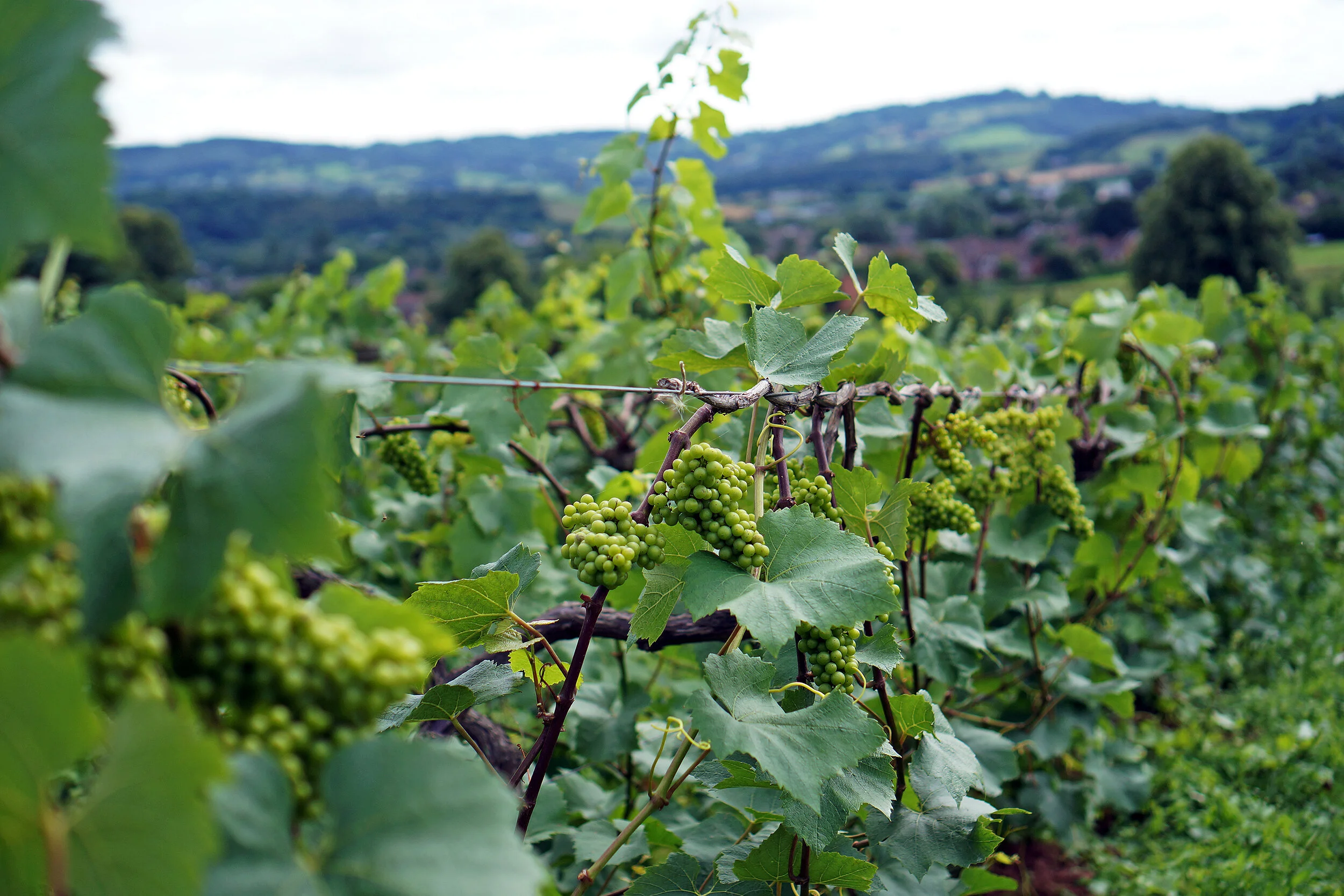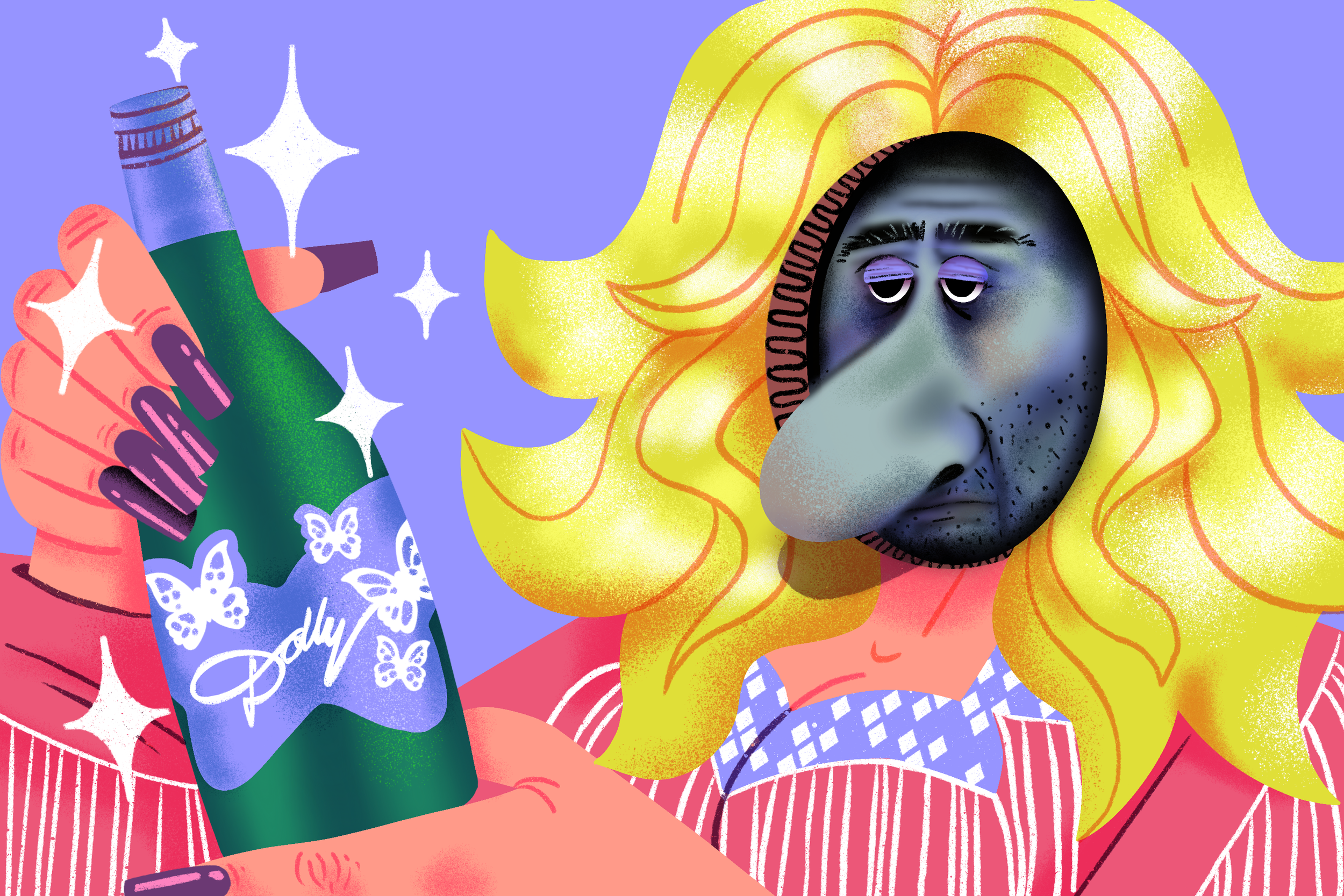Convention is Boring! — Chatting Wine Importing with Joel Wright of Wright’s Wines
It was a grey day in March when I travelled to London to eat a sandwich with Joel Wright.
I’ve known Joel for some time now and it was a relief, among the chaos and confusion that is central London, to spot the Independent Tropical Wales logo embroidered on his cap coming into focus as he got closer.
The sandwiches that we went on to eat—house-baked hoagies crammed with a harmony of condiment slathered fillings from Bodega Ritas near the famous Smithfield Market—bear no relevance to this piece other than they were delicious and I have thought about them often since.
Joel Wright, of Wright’s Wines, is an importer specialising in natural wines from France. The welsh for wine importer is mewnforiwr gwin and I am telling you this because Wales—Carmarthenshire specifically—is where Wright’s Wines originates.
Except that’s not entirely true. While Joel, his family and the inimitable Wrights Food Emporium run are undoubtedly Welsh, when I ask Joel about how he got into natural wine it’s London, not Llanarthne, that gets the credit.
“My first introduction to natural wine was at Terroirs—around 2009/2010—which is closed now. I was about 21, we had lunch there and they were serving natural wine. I remember that there were wines that were quite crazy and wines that had weird smells and I thought ooh this is kind of interesting” Joel tells me, as I grab the opportunity to take the first bite of my sandwich.
““In the years that I worked with Joel... I grew to understand and cherish the relationship that we have with our food and drinks,””
“Later on when I moved to London I started trying stuff at [Hackney restaurant] Brawn and really got into it,” he continues. “I always grew up drinking wine. My Dad liked European wine rather than New World, he was into—not big expensive classics—but more traditional wines that went well with food.”
Has his Dad’s palate changed in the years since? I wondered aloud…
“He’s fully converted,” Joel says with a smile. “He’s very interested in farming and agriculture and the environment so he wasn’t hard to convert, to be honest.”
Wrights Food Emporium was founded in 2013—a family formed around a shared focus to prioritise quality over formality—and the rest, as they say, is history.
For those of you who haven’t visited Wright's Food Emporium in Llanarthne—and as a result, have not lived—let me attempt to give a description that will do it justice. Picture, if you will, a pale lemon building, nestled amid the glorious Carmarthenshire countryside that houses a cosy maze of dining rooms. Here you can feast on welsh rarebit toasties and their infamous Cubano, shelves upon shelves of Welsh produce, tables heaving with freshly baked cakes, and, ultimately, a bar stocked with a beautiful selection of natural wine.
Emporium is the perfect word for it.
***
It was interesting listening to Joel talk about the places and the wines that first sparked his curiosity and conversion towards natural wine because it’s Wright’s Wines itself that is responsible for mine. If it wasn’t for Joel and the wines he has invested in, I would question whether I would be sitting here writing to you today.
For a brief yet beautiful period of time—2017 to 2020 to be exact—Wright’s Wines had a teeny wine bar on a balcony of a Cardiff arcade under the same name. It’s where I first learned that red wine could not only be served chilled but sparkling too. It’s where I first tried the wines of Julien Pineau, whose Substance—a Sauvignon Blanc from the Loire Valley—tasted exactly like walking through a forest in the half hour after it rains, when there is green as far as the eye can see and the air is full and fragrant with verdant life. It is where I learned what it is to drink and taste wines that have been made with care, wines that are honest, that are free of chemical manipulation and full of personality.
Illustrations by Karagh Byrne
And I am not alone in this. I first met Tomos Bull—now wine pourer extraordinaire at Bulles Wines in Cardiff—when he was working at Wright’s wine bar and I am lucky now to call him a friend. I asked him how working at Wright’s shaped his understanding of wine.
“In the years that I worked with Joel and the entire family at Wright's, I grew to understand and cherish the relationship that we have with our food and drinks,” Tomos tells me. “And by extension the relationship between ourselves and the environment that we share.
In essence, Wright’s has a lot to answer for.
***
For me, a big part of working in wine is the sharing of stories. And who better to tell these stories than the person quietly in the middle of the mechanics of it all: the wine importer.
So how does one go from appreciating and buying natural wines to importing them?
“I was really lucky because we knew that if we bought a pallet of wine we could sell it at Wrights,” Joel says. “So we bought one pallet of four producers and the guys at P Franco [an East London-based bar and bottle shop] put an order in straight away, they were very supportive. It was able to slowly develop from there. I didn’t go into full-time importing until 2020.”
“It was a slow evolution,” he explains. “But we knew there were wines that we could bring in that would be exciting and fun. I used to just drive up to London [from Wales] and take them in my car.”
““It is where I learned what it is to drink and taste wines that have been made with care, wines that are honest, that are free of chemical manipulation and full of personality.””
And it’s not just about the logistics of connecting winemaker and farmer to bar and bottleshop either, it’s representing the people behind the labels and advocating for all the labour and love that goes into every bottle. A representation that Joel takes seriously.
“People need to visit a vineyard and see just how much work is going on, before they go onto the internet and write a load of shit about wine,” he says when the subject veers into wine fault territory. “It’s part of a consumer culture where you can just dismiss someone because of a bad bottle or experience, but if you go and visit the producers and see how much work they’re doing, no one is out there trying to make mousy wine.”
I couldn't agree more.
***
It wouldn’t be an essay on Wright’s Wines if I didn’t reference Gamay at least once. For whilst all of the wines that Joel imports vary wildly, there is, as he’ll be the first to admit, an awful lot of Gamay to be found.
“I’ve definitely got too much Gamay in my portfolio, it's just full of Gamay. You ask me what my criteria is? Importing Gamay,” he jokes. “There's just a lot going on in Beaujolais and it's all really good so I do try and be sensible but sometimes it is difficult. They all taste completely different and that's exciting.”
I ask Joel if he has a favourite and regret the question immediately. I have, essentially, asked him who his favourite child is.
“I don’t like to pick out people because they’re all amazing. Everyone I work with is exciting and inspiring to me in their own way,” he explains and I think how lucky wine is to have someone like Joel who advocates for his winemakers so passionately.
So instead of a favourite, we talk about a winemaker who has just joined the Wright’s Wines portfolio.
“We started working with this guy from Beaujolais, called Nicolas Pavie,” Joel tells me. “He works two hectares and the vineyards are incredibly beautiful, so healthy, the soil is almost like a cake, it's crazy. He’s making these very balanced, detailed wines with no additives. They’re just delicious.”
My curiosity is sparked, and a few weeks later I seek out a bottle of Nicolas Pavie’s wine for myself. Enjoy The Silence 2019 is from a vineyard in the lesser spotted Popey in South Beaujolais. It is soft and smooth, like the perfect chat-up line or someone helping you with your coat as you leave a restaurant, like parma violets softly melting against your tongue, like teeth cracking into chocolate-coated cherries, like blueberries bursting. It is, as Joel rightfully says, delicious.
I ordered the wine, and some others, from Joel and minutes, before it arrives, so does an email, also from Joel. It is one sentence long:
“I sent an extra bottle as a gift,” it reads. “More Gamay.”
I smile.
***
Something that’s always struck me about the scene of small natural wine importers in the UK is how supportive they are of each other, and how generous they are to those lucky enough to come across them.
Steve Nuttall is the co-founder of Wayward Wines, based in Leeds, and when I tell him I am writing a profile about Joel he agrees to talk to me with an eagerness I warm to, telling me he has a great story about how he first met Joel.
“I'd been on a trip around France and ended up in Paris at this bar called La Buvette who were doing a tasting with a [Loire Valley] producer called Luc Sébille, who makes amazing Chinon,” he tells me. “I really enjoyed the wine but when I got back to the UK, it wasn't to be found anywhere. And three or four years later, completely out of the blue, I got a phone call from Joel, who'd been looking at places where he could start to sell the wine that he’d begun to import. He said that he was working with this guy called Luc Sébille.”
“This had been something that had eluded me for a really long time and then I just got this random phone call and it was Joel, who could supply me with these wines,” Steve continues. “And then it came full circle in that Joel actually ended up bringing Luc to our shop and there was just this really nice thing about me, you know, bumbling in completely by accident to this tasting in Paris and then five years later, he was in my shop doing the same thing. It was all because of Joel that that happened.”
Joel referred to himself as the middleman when we talked, but it should be clear by now that he is much more than that.
The role of a wine importer is a complex one, working between maker and seller is all about balance, about connection, about trustworthy representation. It is hard work, but hard work that, when done right and with care, results in magical moments such as the one Steve described to me. When good wine is paired with good people there is no better alchemy.
Wrapping up the interview—and the last of my sandwich—I ask Joel about his plans for the future. He smiles, telling me he’s got a trip to Alsace scheduled soon.
“I need to get some white wine,” he shrugs.

















